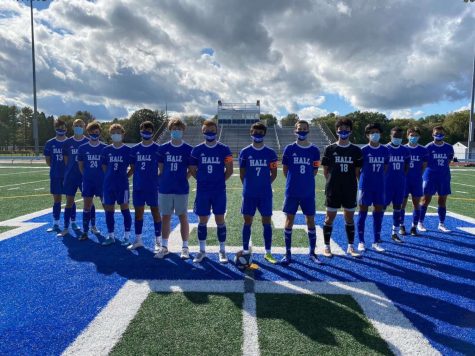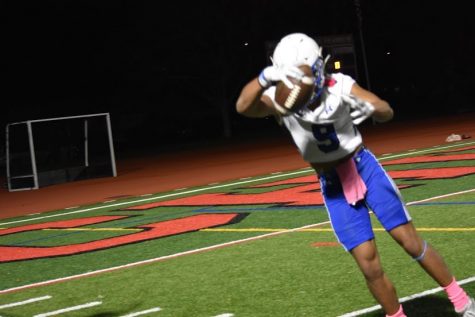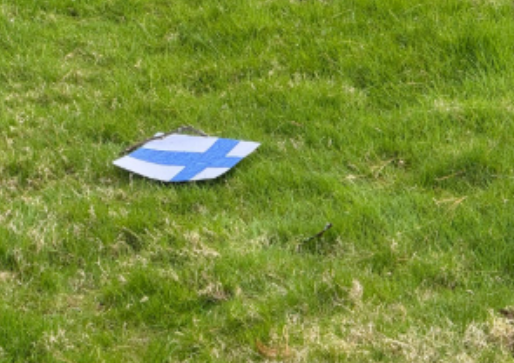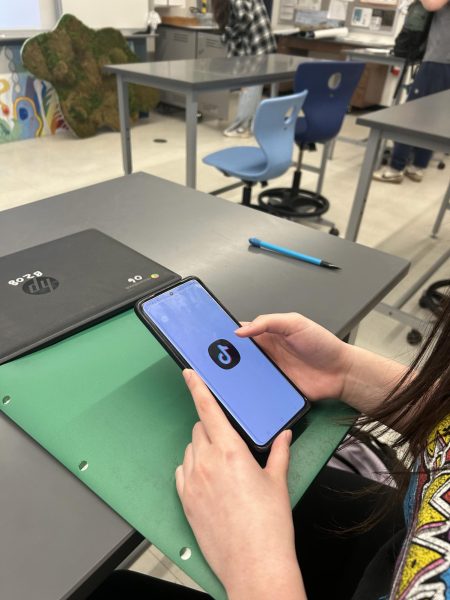Sidelined
COVID-19 has negatively impacted the mental health of student athletes, especially those in their last season. Uncertain of what opportunities they will be given, athletes attempt to stay hopeful.
“Since March, the mental health of our kids has been an increasing concern every week, every month that we have not been able to get back to some type of normalcy. It’s a very real issue that we are dealing with,” said Arizona Interscholastic Association executive director David Hines.
Across the country, student athletes are lost as to what comes next. For some, their games have been modified, and for others, stripped away completely. This leaves them feeling upset about their situation, which can be the root of some mental health issues.
The University of Wisconsin studied 3,000 Wisconsin high school athletes shortly after the onset of the pandemic, and their findings revealed that 65 percent of them showed signs of anxiety, and 68 percent showed symptoms of depression.
Unfortunately, these problems may not be going anywhere.
“There likely will be long-term effects from these depression and anxiety symptoms. People respond incredibly different to these conditions, just like they do to COVID itself. For many there will be long-lasting consequences, we just don’t know what they are going to be,” stated Dr. Javier Cárdenas, a neurologist at the Barrow Concussion and Brain Injury Center. What’s scary is the lack of knowledge for how these circumstances will hurt athletes. No one has been through times like this in our lifetime, and as a result, there are no definitive answers.

(Maryanne Seguro)
Dr. Laura Sanders, psychologist at The Institute of Living/Hartford Hospital, attempts to put things into perspective.
“The three constants in a teenager’s life can be their family, their peers and academics, and they’re missing two of those right now. Social anxiety and isolation are growing exponentially during this pandemic. We’re just starting to see the ramifications of this.”
The best way to determine the true effects of this pandemic is to talk to athletes who are currently being impacted. Zachary Berkowitz is a senior at Hall High School in West Hartford, Connecticut, where he is a part of the rowing team as well as the tennis team.
When asked how his season was being impacted, he said, “[Right now] I row instead of doing sweep rowing with eight people in the boat and one oar. We have been doing sculling which is typically boats of one and two.”
Mr. Berkowitz is losing the team aspect of his sport and instead is forced into a more individual competition. For his senior and final year, this is not something he had ever envisioned.
“Practices are much shorter and don’t have any races,” Mr. Berkowitz added. “I don’t think I am as in shape as last year. I’m only practicing 2-3 times a week and they’re shorter.”
Coaches are also right in the midst of the issues. Because they are around their players constantly, they get a good idea of their player’s emotions.
“[The athletes] are probably feeling disappointed, uncertain, and concerned
Opportunities to be recruited and seen by college coaches have been lost. The summer provides camp and showcase opportunities for athletes looking to be recruited, and that was ripped away,” said coach Garth Adams, the head boys basketball coach at Tolland High School. “Sports provide an opportunity for stress relief, a way to make connections and socialize. Teams lost opportunities for increased comrade, team building, and as a result may not be as closely-knit as they would be in non-COVID times.”
Other coaches around the state had more positive viewpoints. Jacob Candle, the boys soccer coach at Bloomfield high school, said, “Soccer is soccer, no matter how long, if you have the love for the game, you’re going to be alright.”
Despite the ever-changing rules swirling around high school athletics, athletes and coaches such as Candle are looking to make the most of it. The sports are still the same, regardless of the changes made to them.
Mental health changes can also be found outside of the scope of high school. Pro athletes are feeling the effects of this pandemic as well. A study conducted by Stanford University and Strava, a social network of exercise enthusiasts, found “22.5 percent of professional athletes reported feeling down or depressed on more than half of the days of the week in the period between mid-March and August of this year, while COVID-19 restrictions on athletic training and competition were in place, compared to 3.9 percent of athletes reporting the same struggles earlier this year before the pandemic hit. That’s an increase of 477 percent.”
This data goes to show how widespread these problems are. Athletics help many people deal with their issues, so taking them away leaves them without an outlet.

(Xavier Phillips)
Back on the high school level, even those who don’t play a fall sport themselves believe it is possible. Maggie Monnes is a senior at Hall High School who thinks the coronavirus situation is going fairly well.
“We don’t have any outstanding cases or clusters among sports. There should be limited amounts of fans, not just parents and family.” With only immediate family allowed to attend games, the social impact of sports was taken away, and there are no longer large cheering crowds of hundreds of people who can influence the outcome of the game.
“It’s just not the same environment without fans,” Monnes remarked. “Especially without the state tournament, no team can make a tournament run.”
Regardless of personal opinion on whether sports should be played right now, there is no denying that athletes are missing out on what is for most their last true sports experience. An overwhelming majority of athletes have their career end after high school, so everything that is possible should be done to ensure that these athletes have an exciting send off before their inevitable retirement. The mental health of these athletes is on the line, and it’s up to us to protect it.





